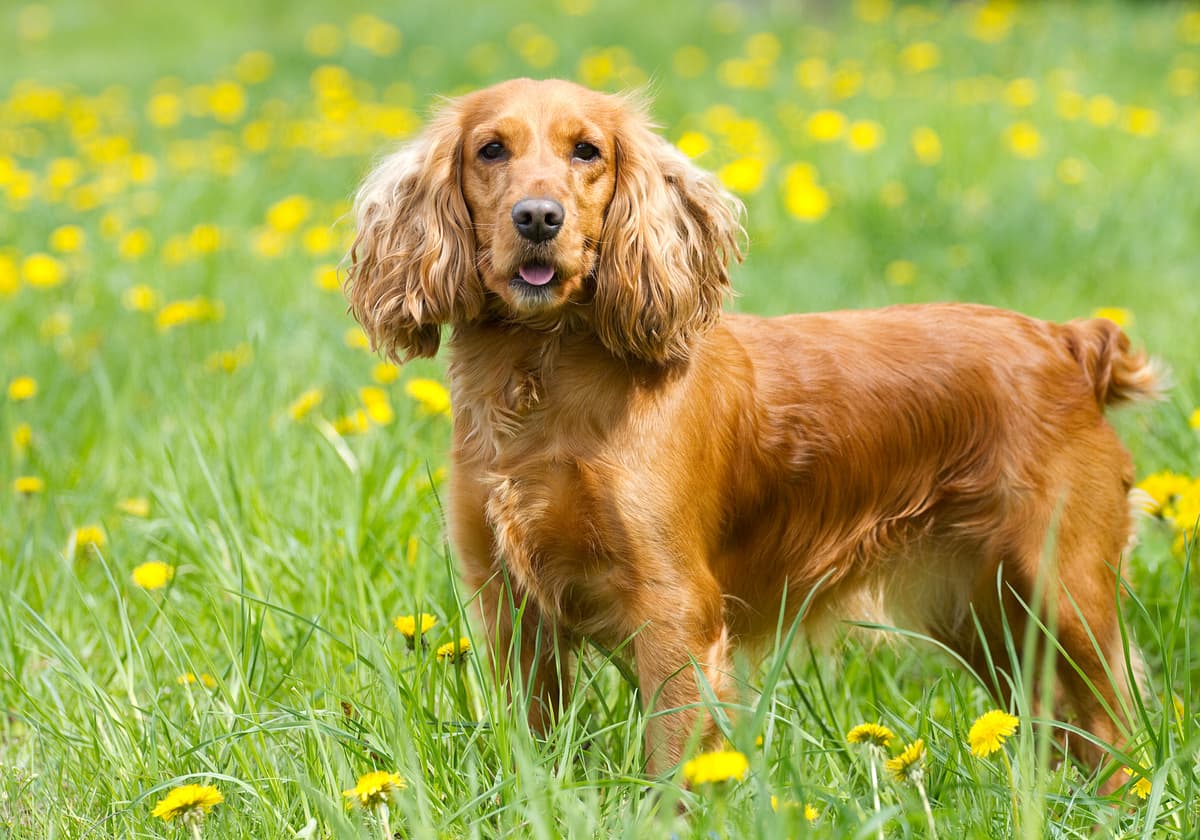Cocker Spaniel vs English Bulldog
Discover the differences between Cocker Spaniel and English Bulldog to make the best choice for your situation.
Try different breeds

Cocker Spaniel
Affectionate and lively, this breed thrives on companionship and interactive play. Soft, expressive eyes and a silky coat make the Cocker Spaniel a charming family favorite.

English Bulldog
Stocky, courageous, and affectionate, this breed charms with its wrinkled face and calm nature. Loyal and gentle, it thrives as a loving family companion.
Quick comparison
Medium
13–16 kg
Silky, feathered
12–15 years
12–15 kg
Moderately active
Medium
23–25 kg
Short, smooth
8–10 years
18–23 kg
Low activity needs
Personality & behavior
Compare the personality traits and behavioral characteristics of both breeds.
Cocker Spaniel
Affectionate with people and other dogs
Quick learner, responds well to training
Enjoys regular activity and outdoor play
Loves games and interactive activities
Adjusts well to different living environments
English Bulldog
Affectionate and gentle with family and children
Learns basic commands with some patience
Prefers lounging over vigorous physical activity
Enjoys play but tires fairly quickly
Adjusts well to most living environments
Care needs
Exercise, grooming, and daily care requirements
Cocker Spaniel
Ear infections, eye conditions
English Bulldog
Brachycephalic syndrome, skin fold infections
Suitability
How well each breed fits different living situations and families
Cocker Spaniel
Great choice
Eager to please and responsive, making training manageable for most beginners.
Suitable option
Adapts well to smaller spaces if exercised regularly and given attention.
Very compatible
Enjoys play and outdoor activities, matching well with energetic homes.
Family friendly
Patient and gentle nature makes them a safe companion for young children.
Generally adaptable
Social temperament usually allows peaceful cohabitation with other pets.
Prone to anxiety
May develop stress or unwanted behaviors if left alone for extended periods.
English Bulldog
Good option
Easygoing, low-maintenance nature suits owners with limited dog experience
Excellent fit
Moderate exercise needs and calm demeanor work well in small living spaces
Not ideal
Low stamina and breathing issues make them unsuited for high-activity lifestyles
Very suitable
Gentle, patient, and tolerant with young children when properly socialized
Usually compatible
Generally sociable but may need guidance with other pets, especially dogs
Not recommended
They struggle with long periods alone and are prone to separation anxiety
Breed strengths
What each breed excels at and their best qualities
Cocker Spaniel
- Affectionate with family members
- Good with children and other pets
- Eager to please and easy to train
- Adaptable to various living environments
- Excellent sense of smell for tracking
English Bulldog
- Affectionate with family members
- Generally good with children
- Low exercise requirements
- Minimal grooming needs
- Adaptable to apartment living
Challenges & considerations
Potential challenges and considerations for each breed
Cocker Spaniel
- Prone to ear infections due to floppy ears
- High grooming requirements to prevent matting
- Can develop separation anxiety if left alone
- May become possessive of food or toys
- Sensitive to harsh training or loud noises
English Bulldog
- Prone to respiratory problems
- High risk of overheating
- Susceptible to skin infections
- Can be stubborn during training
- Tends to drool frequently
Ready to choose your perfect breed?
Learn more about each breed or compare other breeds to find the perfect match for your lifestyle.
Discover more helpful tools
Make use of our other free tools to get the most out of your pet experience
